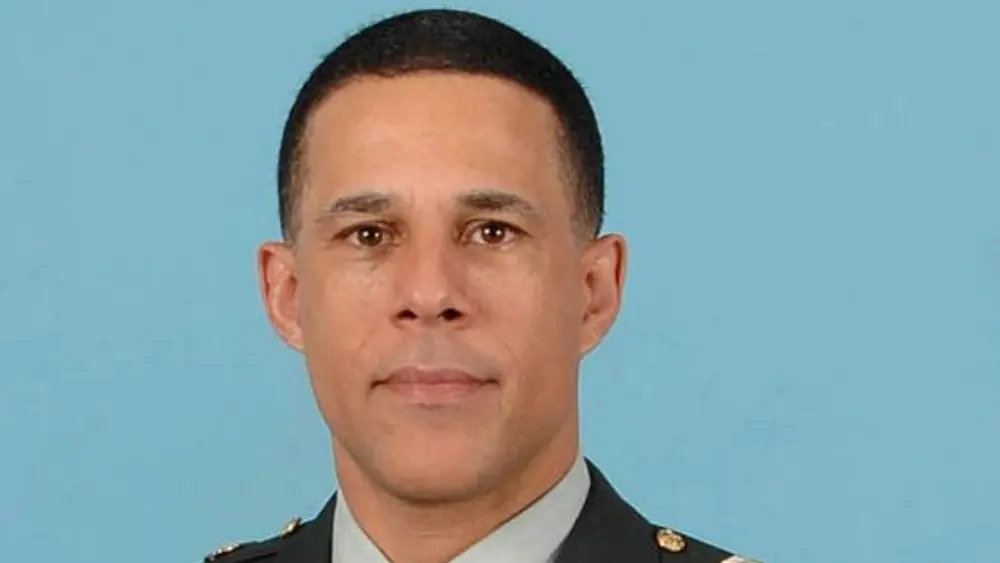Anthony Gregory Brown, born on November 21, 1961, in Huntington, New York, is a distinguished American politician and military Veteran known for his unwavering commitment to social justice and public service. His career has been marked by a dedication to addressing equity, healthcare, and civil rights issues.
Early Life and Education
Anthony Brown’s upbringing emphasized civil rights and social justice principles, shaping his early life and education, driven by his parents. His father’s esteemed service as a Tuskegee Airman, a group of African American military pilots who fought in World War II, exemplified a commitment to both national service and breaking down racial barriers. Meanwhile, his mother’s involvement in civil rights activism further emphasized the importance of fighting for equality and justice.
Brown earned a Government Bachelor of Arts from Harvard University and a Juris Doctorate from Harvard Law School in his educational journey. These schools bolstered academics and instilled justice, equity, and law principles in him, shaping his education profoundly. His education and parental values shaped his public service career, dedicated to civil rights and social justice advocacy.
Anthony G. Brown: Operation Iraqi Freedom
Anthony G. Brown’s commitment to service extended beyond his academic pursuits, as he embarked on a military career that underscored his dedication to his country. He joined the United States Army Reserve and pursued a path as a Judge Advocate General (JAG) officer. This decision to serve in the armed forces showcased his willingness to take on challenging roles and responsibilities in the pursuit of both military service and the principles of justice.
In 2004, Anthony Brown’s dedication led him to Iraq’s frontlines in Operation Iraqi Freedom, showcasing his commitment to service. In a combat zone with the 353rd Civil Affairs Command, he displayed bravery and strength amid tough situations, showcasing his resilience. His Iraq deployment showcased commitment and deepened his empathy for military sacrifices, shaping his public service approach.
Political Career Begins: Maryland House of Delegates
Anthony G. Brown’s transition from military service to politics marked a pivotal moment in his career. Returning from Iraq, he entered politics, winning a Maryland House of Delegates seat representing District 25 in Prince George’s County. This highlighted his commitment to service in a new role, enabling advocacy for meaningful change and progress in his community.
During his tenure in the Maryland House of Delegates, Brown worked tirelessly to advance a diverse array of legislative initiatives. His focus extended to key issues such as improving healthcare access, enhancing educational opportunities, and addressing the concerns of Veterans. This early politics showed dedication to public service and set the stage for advocating policies to improve the lives of constituents.
Anthony G. Brown: Lieutenant Governor of Maryland
In 2006, Anthony G. Brown made history as Maryland’s first African American lieutenant governor, serving alongside Governor Martin O’Malley. His election showcased both political skill and Maryland’s evolving diverse leadership, reflecting the state’s changing demographics and values. Over the course of two terms in this pivotal role, Brown made substantial contributions to Maryland’s governance.
As lieutenant governor, Anthony Brown remained dedicated to several key policy areas. He continued to champion healthcare reform, recognizing the importance of ensuring access to quality healthcare for all Maryland residents. Additionally, he played an active role in initiatives aimed at protecting the environment and addressing environmental concerns within the state. His commitment to Veterans’ issues remained unwavering, reflecting his own military service and dedication to the well-being of those who had served their country. In this influential role, Anthony G. Brown solidified his reputation as a public servant dedicated to improving the lives of Maryland’s citizens.
Congressional Career and Social Justice Advocacy
Anthony Brown’s political career continued its upward trajectory when he was elected to the U.S. House of Representatives in 2016, representing Maryland’s 4th Congressional District. In Congress, he has become a prominent figure and an outspoken advocate for social justice, equity, and civil rights. He tirelessly addressed critical issues like justice reform, voting rights, and healthcare, emphasizing support and opportunities for marginalized communities.
Throughout his time in Congress, Anthony G. Brown’s commitment to social justice has been evident in his legislative efforts and advocacy work. He has consistently sought to address systemic inequalities and push for policies that promote fairness, equality, and inclusivity. His dedication had a major impact locally and nationally as a prominent voice for positive change and progress in the USA.

Anthony G. Brown: Legacy and Ongoing Advocacy
Anthony G. Brown has etched a significant legacy as a dedicated advocate for social justice and equity in the United States. His extensive background in military service, legal expertise, and successful political career have uniquely equipped him to tackle a broad spectrum of issues that affect marginalized and underserved communities. Throughout his tenure in Congress, he has remained unwavering in his commitment to address systemic inequalities and push for policies that promote fairness and inclusivity. His legacy is defined by his relentless work to create a more just and fair society, leaving a lasting impact on the fight for social justice in America.
Even beyond his legislative role, Anthony G. Brown’s ongoing advocacy efforts demonstrate his enduring commitment to positive change. He continues to use his platform to amplify the voices of those who have been marginalized and disadvantaged, striving to ensure that every American has an opportunity to thrive and contribute to the nation’s progress. His work stands as a testament to the power of dedicated public servants to make a lasting impact on the pursuit of equity and justice in the United States.











